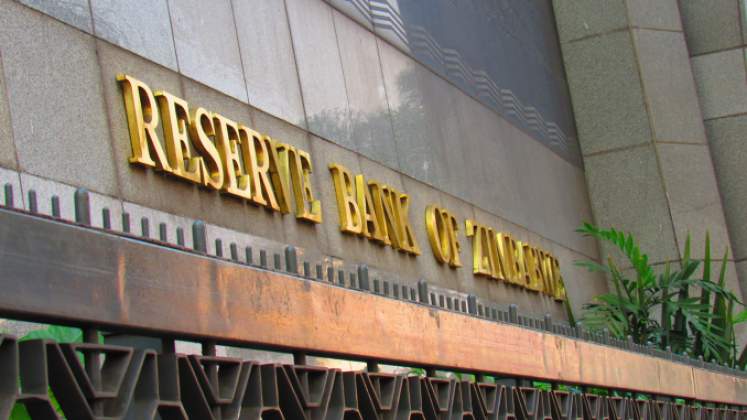Zimbabwe’s government has stopped borrowing funds from the Reserve Bank of Zimbabwe (RBZ), claimed Finance and Economic Development Minister, Professor Mthuli Ncube, who said treasury was now living within its means.
The government used to finance its deficit through borrowing from the central bank and at times overshooting the 20 percent limit prescribed by the Reserve Bank Act, resulting in it running deficits showing it fails to eat what it has gathered in revenue.
However, Prof Ncube said the centre of the Zimbabwe’s funding programme was now “living within our means and making prudent use of taxpayers resources.”
“So, the fiscal side of things is sound, and the government finances are sound. Treasury or central government has stopped borrowing from the Reserve Bank window. Previously, we used to do that, even to pay salaries prior to July 2018, before and also at the beginning of the new dispensation, so that has stopped. Believe us, this means that everything is run properly,” said the finance minister in Bulawayo recently.
In 2018, total lending of RBZ to central government stood at RTGS$3 billion, representing 55 percent of the previous year’s revenue.
The finance minister said Treasury had managed to tackle areas that were critical for stability and stabilisation such as solving the fiscal side of the country’s macro management equation.
“In the last two years, we’ve managed to balance our budgets, and even recorded surpluses in some years. But really, the idea of balancing the budget has been the most critical issue in stabilising things because that means we have reduced domestic borrowing through the issuance of treasury bills,” he said.
“We still issue treasury bills to keep the market growing in part, but also to finance this and that, but really it’s not the centre of our funding problem.”
Other than seeking accommodation at RBZ, government has been borrowing from the domestic market through the issuance of Treasury Bills thereby crowding out the private sector.
“I really think that the Transitional Stabilisation Programme has delivered on its targets that we’ve set out to achieve during this two and a half year period from October 4, 2018 to end of December, 2020. We’ve delivered a stability so the notion of stabilisation has been achieved and we can all feel it.”
Prof Ncube argued introducing a local currency had been necessary so the country could have its own monetary policy as an additional tool for macroeconomic policies.
“Before the reintroduction of the Zimbabwean Dollar, we did not have monetary policy. What we really had was a regulatory policy, because you can only have monetary policy, if you have your own currency. If we don’t have own currency, you have no monetary policy. If you have no monetary policy, then you are hamstrung in terms of the tools, you have at your disposal to manage your economy and we’ve managed to resolve that,” he claimed.
The minister was also pleased with the level of coordination, he said was taking place between Treasury and the central bank.
“We introduced a monetary policy committee, which works with the governor and we’ve been very consistent in pronouncing in terms of announcements, direction and monetary policy direction in general,” he said.
He added that Treasury was also targeting to grow a reserve manual base of money, which in technical terms is called ‘M0’ that refers to the total of all physical currency including coinage.
“That’s the critical part of money supply that should be targeted when you ever want to deal with inflation. So we have targets, we’re stuck to that target. So there’s prudent monetary policy management and then there’s coordination. Now between one of the policy management and fiscal management, you need that coordination and there’s very good coordination. That weekly meetings between Treasury and the central bank without fail, weekly meetings, and that’s very important for coordination,” Prof Ncube said.
The finance minister was also proud that they managed to establish a Liquidity Management Committee, between the central bank and Treasury to manage liquidity issues within the economy,
“We also established a Loans and Debt Management Committee, which basically manages the entire process for contracting both domestic and local debt in the economy. So things are well managed, colleagues, I can assure you on the financial fact you can sleep well, you should not have any worries about the solvency of financial prudence within government.”
Prof Mthuli Ncube.
“And what has happened is well after the introduction of Zimbabwe dollar, is that things have again gone according to plan, when it comes to the current account, performance of exports, performance of imports, which is relative to each other, which is the basic trade balance.”

